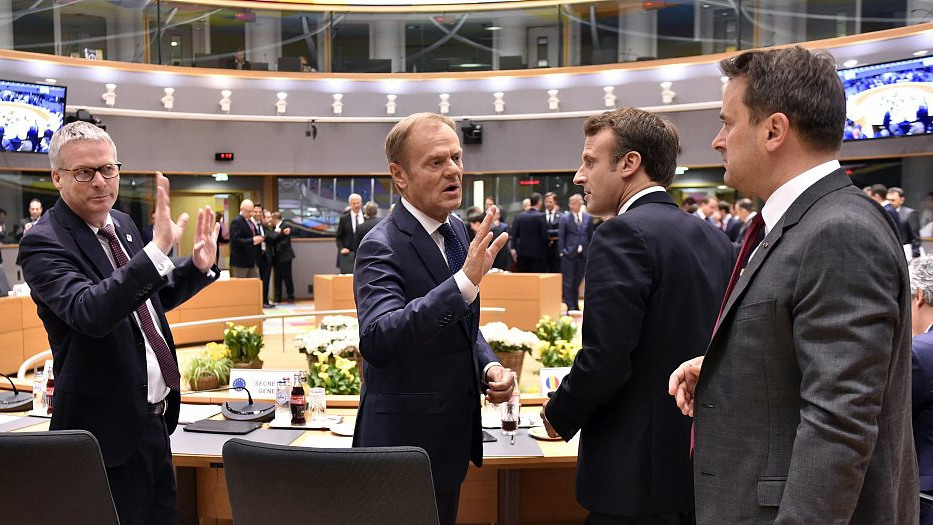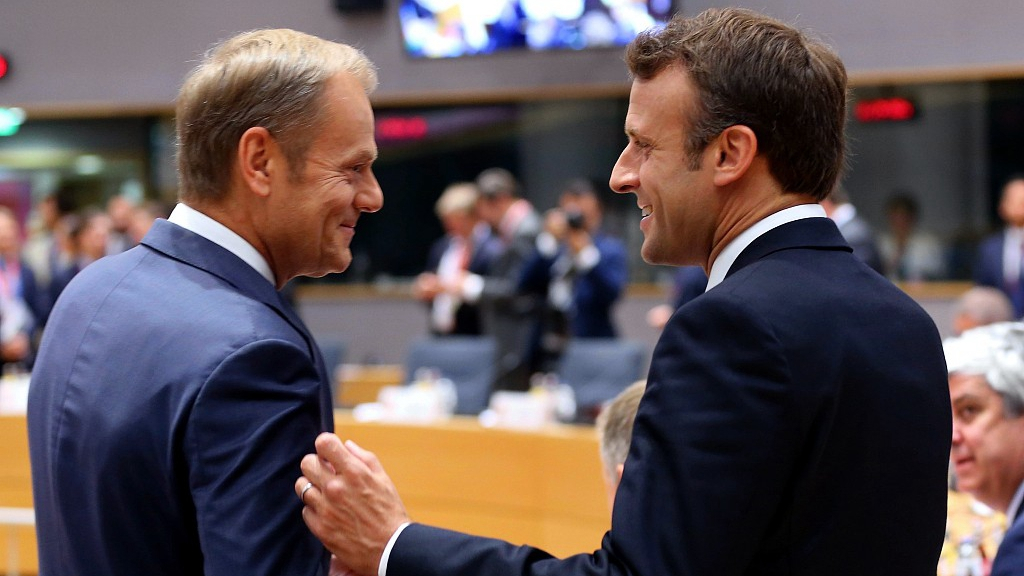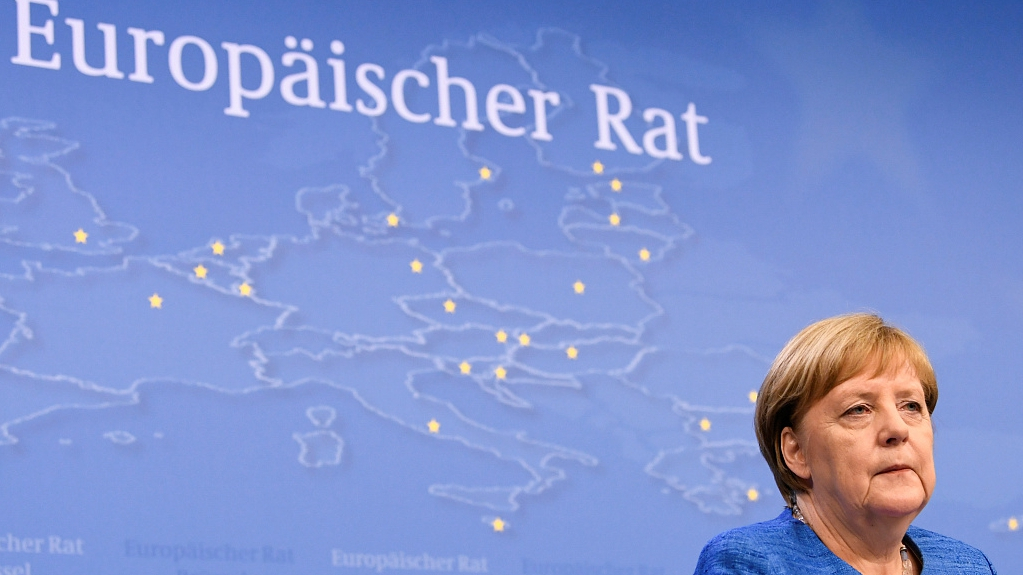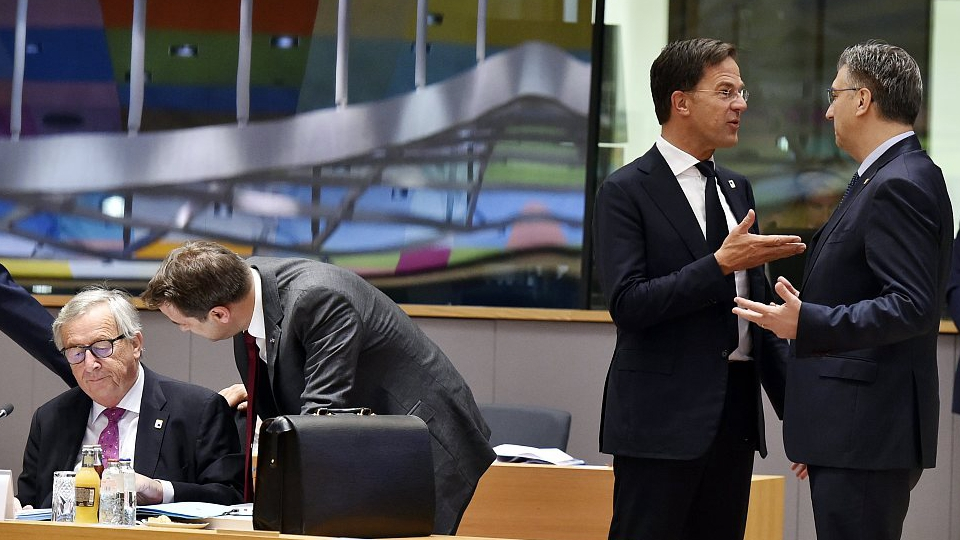

In a closed-door meeting, with cellphone signals jammed and aides barred, the leaders of the European Union member states debated the allocation of the bloc's top jobs into the early hours of Friday morning in Brussels.
In making a decision, the 28 must weigh their own national concerns, the imperative of balancing geography and giving both small and big countries representation, satisfy the political demands of a majority in the European Parliament, and ensure gender diversity in the EU's leadership.
Nothing was decided.
Read more:
Crisis summit on EU's top jobs scheduled
Back in 2014, the last election cycle, haggling over the EU leadership took three months after the center-left and center-right groupings won a combined majority in the parliamentary polls. In the 2019 polls there was no such majority.
That vote fragmentation – with four groupings now seeking big jobs – looks to have killed the Spitzenkandidat process by which Jean-Claude Juncker became European Commission president five years ago, the most powerful position in the bloc, as the lead candidate for the biggest group.

President of France Emmanuel Macron (R) and President of the European Council Donald Tusk (L) at the European Council Summit on June 21, /VCG Photo
It has also raised fresh questions over an EU democratic deficit, a longstanding charge, and the processes by which leaders are chosen.
The European Parliament elections are the second biggest democratic exercise in the world and in the May polls there was a surge in voter turnout as engagement among young people increased, with a particular focus on climate change.
Yet the leadership – the individuals who will negotiate with world leaders, or set monetary policy for the 19 members of the eurozone – will be chosen largely behind closed doors, with endorsement from the parliament on the Commission post.
Read more:
Contenders for the EU's top jobs
European Council President Donald Tusk on Friday defended the system, saying "The processes, I think, were pretty transparent. Sometimes I feel maybe too transparent to be productive... sometimes what I feel is that the public knows more about the possible candidates and names than me."
However, the shade of democratic accountability created by the Spitzenkandidat process has now been all but abandoned and, as French President Emmanuel Macron said after this week's talks in Brussels, directly electing top officials may happen one day but isn't on the immediate agenda.

German Chancellor Angela Merkel attends a news conference after the European Union leaders summit in Brussels, Belgium, June 21, 2019. /VCG Photo
Macron has been at the forefront of attempts to make changes to the bloc, pushing a plan for pan-EU elections for a proportion of the parliamentary seats as part of a broader reform agenda which has so far had little traction.
The French president has also been the most vocal opponent to Spitzenkandidat, and particularly the candidacy of Manuel Weber – the frontrunner if the process were followed. Weber has been backed by German Chancellor Angela Merkel, his compatriot and fellow European People's Party member, but now appears to have little chance a top post.
The split between Macron and Merkel over Weber, and the reform direction of the EU, will need to be addressed to unlock the current stalemate.

Inside the European Council summit in Brussels, Belgium, June 21, 2019. /VCG Photo
Discussions now move from Brussels to Japan, where several of the EU leaders will gather for the Osaka G20 summit on Friday and Saturday.
Macron and Merkel will be joined at the summit by Italian Prime Minister Giuseppe Conte, Spanish Prime Minister Pedro Sanchez, Dutch Prime Minister Mark Rutte, British Prime Minister Theresa May as well as outgoing EU leaders Juncker and Tusk.
On the sidelines, negotiations will continue before the leaders return to Brussels for an emergency summit scheduled for June 30.
Days later, on July 2, the new European Parliament will convene and elect its president. The clock is ticking for compromises to be made and deals done.
But as the lobbying and haggling continues, and challenges from Brexit to trade conflicts intensify, the best hope for a breakthrough looks to be a deal between Macron and Merkel – maybe even in Japan.

Copyright © 2018 CGTN. Beijing ICP prepared NO.16065310-3
Copyright © 2018 CGTN. Beijing ICP prepared NO.16065310-3